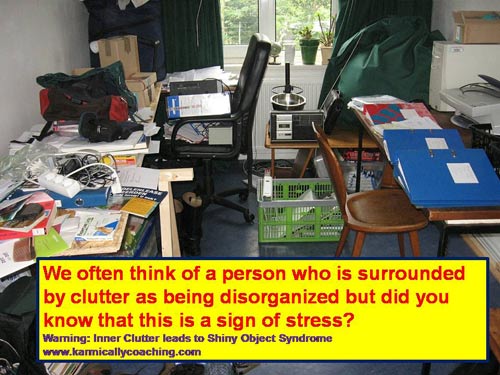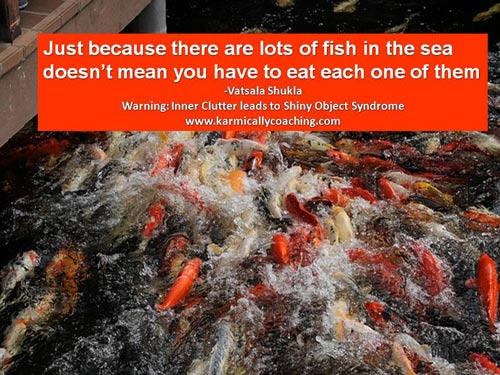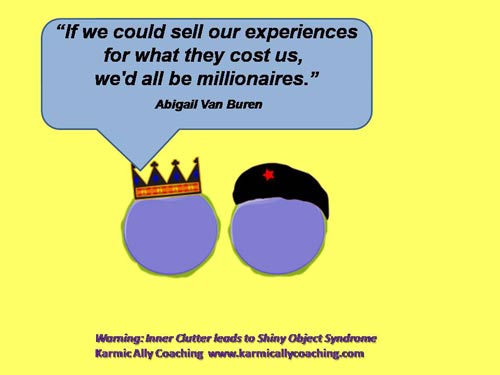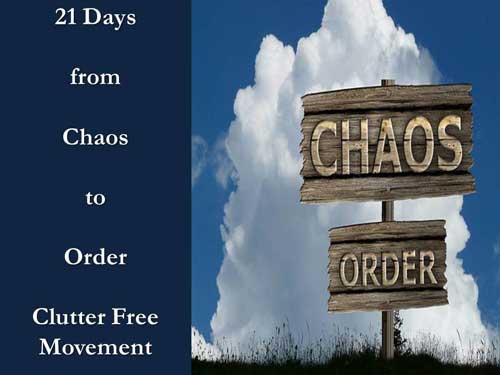This post has already been read 3496 times!
Many years ago, when I first returned to India, I wanted to buy a particular Avon cosmetic product. I contacted their head office and was put in touch with my area Avon lady to make the purchase.
Avon Lady had business development ideas/ Despite my pleas, she enrolled me as an agent with hard core persuasion to sell products with the lure of profits. I wasn’t really interested but I wanted to buy the product and keep her happy.
So, I signed up and used my agent status to help friends into Avon place their orders. There wasn’t much profit, but I got the product I wanted. Avon Lady soon realized I was a useless recruit and stopped harassing me to make sales to meet her targets.
Frankly speaking, selling beauty products is not a skill everyone possesses. One of my friends who used to make a few purchases told me a story that made me count my blessings with Avon Lady.
A couple of her work colleagues who wanted to earn some fast money signed up for a competitor. Their terms and conditions included buying Rs 5,000/- of products up front and then selling them for profit.
They didn’t know the first thing about marketing and sales. Since the products were highly priced, selling was a challenge. Ultimately, they ended up using them themselves.
Sadder but wiser, they stopped falling for the work from home scheme that could lead to exotic holidays. That was an expensive way to avoid Shiny Objects but many times there’s no gain without pain.
Is your inner clutter manifesting as Shiny Object Syndrome?
Open a new browser tab and do a Google search for Shiny Object Syndrome (SOS). You’ll notice tons of blog posts and experts talk about how to overcome SOS and give lots of action steps.
But what about the Why part?
Last week I wrote about Shiny Object Syndrome and how professionals fall into that trap in pursuit of professional development and enhancement of skills. I touched on how FOMO affects business owners too. Here’s the link to that post.
I have yet to see anyone talk about a core issue and relationship between SOS, clutter and stress. This topic needs to be addressed.
Here’s my personal view on aggravated Stress, SOS and Clutter
The way I see it, when we are stressed out, we tend to look for relief and short cuts to our problems. While looking for solutions if the hook of the marketing message for a product or service hits a raw nerve, we go and enroll for the service of buy the product.
But that doesn’t provide instant gratification. If you don’t use your purchase or free product, then you have acquired a shiny object which lies unused.
Frankly speaking this is nothing but clutter whether it is on your computer hard drive or worse, inside your head.
Let us focus on your core clutter issue with the learning objective of beginning to gain an understanding of the specifics of Inner Clutter.
Why We Have Clutter—INNER CLUTTER
Let me start by asking you a question.
Have you ever noticed that your TO DO list never gets to TO DONE?
And, worse yet, you
a) can’t find your list it when you need it,
b) it’s gotten so long you feel overwhelmed and not much is getting done, and
c) you’ve written the same notes a million times, they’re all over in piles and stagnant places but never completed.
6 Rational Reasons for Staying Disorganized
The reasons for being disorganized are many, but there are some that can be heard anywhere:
- not enough time
- not enough space
- need help deciding or moving things
- not enough skill (don’t know how)
- need for the right systems with which to organize
- not enough money (to buy the systems or pay for help)
And if these don’t keep people from getting organized, there are 3 other “Inner Clutter” reasons – unwillingness to do it, lack of motivation and energy.
We can take each one of these obstacles to task and choose to override it and get the job of organizing underway. This is where the converting intention into action comes in.
If we really want to do something, we’ll find the time, energy and if required, money to get the work done.
But instead of taking action, we decide to find a short cut. We add to our list of outside products or services without stopping to think if all that is required is action on our part.
Clutter is a symptom of stress

We often think of a person who is surrounded by clutter as being disorganized.
Did you know that this is a sign of stress?
Left unattended it may also become the manifestation of more serious issues. Such as depression, overwhelm and complete lack of focus.
Stress is caused by many factors, but when it comes to being disorganized it’s caused by a few targeted things:
- Lack of focus (letting yourself get distracted)
- Not scheduling the time to deal with it
- Not understanding how to organize
- Not deciding what to do with it
- Lack of action
A life without focus and clarity—Inner and Outer—is a life easily distracted and drawn off course and off center.
Stress is going to happen—that’s life! However, constant and ongoing chaos, indecision and disorder pull us off center and away from all that is truly important in our lives.
When “stuff” happens, and our emotions and thoughts start going wild, we need to detach and keep our inner-self—our mind and thoughts focused and clear under any and all kinds of stressful situations “no matter what.” Then we can more easily stay focused and connected to the important doing of the next step, and the next and the next.
This blog post is not focused on your stress management techniques or how to handle stress. It is a first step to getting yourself organized which in itself will reduce some of the stress. This will give you back control over your life and possessions.
An easy clutter and stress management technique
When you see a neat and tidy room, broken things thrown away, items that you don’t need either sold or gifted to a charity, it raises your spirits.
That in itself is a stress management technique. The positive feeling will flow into other areas of your life too.
There is an emotional and psychological element in our tendency to acquire SOS and hoard them. Clutter and hoarding have been studied in great depth by clinical psychologists. Often what appears to be a simple mess may actually be an indication of more serious conditions.
To gain a better insight into our clutter and to take steps to prevent it from emerging, preventive steps are important. Sometimes we acquire stuff that may really serve no purpose.
This is where our emotions come into play. If you’re brave, ask yourself some hard questions before jumping into acquiring something which is otherwise useful but is a SOS adding to clutter for you.
Maybe its FOMO (Fear of Missing Out)?

Eating fish Shiny Object Syndrome
I saw this played out when I hosted a pilot of my 21 Day Clutter Challenge for free with the caveat that I wanted feedback to fine tune the program. Of the 25 sign ups, only 5 participants stuck to the full program and benefited. Their feedback was priceless.
Of the others, maybe 5 more stayed on track but didn’t complete the program.
15 never bothered to even open the mails with the modules! One of the participants was a member of a mutual Facebook Group. I wrote to her asking for feedback since I could see her activity and knew that she was downloading all the handouts. Presumably, she did the work.
I was stumped by the feedback. While she downloaded everything, she had signed up for quite a few free challenges and hadn’t done any of the work. So, she couldn’t give me the feedback I needed.
It goes without saying that this is, in my books a classic example of Shiny Object Syndrome!
What next?
I discuss more practical steps in my Kindle ebook Cure Shiny Object Syndrome.
The truth is that once we take the sting out of the decision, it is much easier to take the right action. Understanding ourselves helps us to understand why that item became clutter in the first place and how to prevent it in future.
So, what’s the state of your clutter and acquisition of shiny objects? Want to take charge of your situation and make the required changes?
If yes, then I recommend enrolling for my 21 Day Clutter Challenge where we address both your Inner and Outer Clutter. We’ll also take a look at Shiny Object Syndrome too.
Click the image below to enroll in the challenge if your answer is in the affirmative.





 I adhere to the Certified Coaches Alliance Code of Ethics and Standards. A copy is available on request.
I adhere to the Certified Coaches Alliance Code of Ethics and Standards. A copy is available on request.
 Let's Talk through the Connect Form:
Let's Talk through the Connect Form:
Oh no…if you could see my office…I am usually pretty organized but as of late…not so much…I guess I need to do a little reorganizing in more ways than one and get with the program. Great post!
Looks like you are trying to achieve a lot of goals in 1 go, Lisa. A cluttered desk is a sure sign of multi-tasking and the related stress when nothing gets finished. Reorganizing and a spot of filing will make a difference.
Oy, that desk looked just like mine last week, Vatsala, how did you know? So lucky I cleaned it up before reading this post so now I have something to brag about!
But seriously how is it that every couple months my desk is super clean and shiny and then I manage to add up tons of things? Let’s see: I have paperwork that needs be dealt with, you know – lists, stuff for kids from school, then cosmetics, books etc.
I feel such relief when I clean them up!
We all have our own way of dealing with work, Delia. It seems yours is to know the job is done when the desk is spotlessly clean and clear. 🙂
Oh my goodness – this is so true! I find this in my work with people in their homes… clutter and chaos is a symptom of something else, and they feel so much clearer and happier when they are able to do what they need to do to get rid of things that aren’t serving them! Decluttering also helps them not get into the same situation again down the road… I want to try to hear your teleseminar!
I’m looking forward to having you join us at the teleseminar this Sunday, Kimberly. There will be a replay so all is good!
Last month I went to my email provider’s web mail (I have all my emails come into my Mac Mail and I delete them as I go), only to find I had 22,000 emails still on my server, all of which were received in a one and a half month period! Talk about overwhelm and clutter in my “inbox”, so I immediately set out to delete 20,000 of them and took steps to make sure all emails are deleted after 30 days. I do feel that the online world brings a ridiculous amount of new “clutter” into my life and lately have been feeling the desire to withdraw and spend energies in the “real” world.
I’m also in a one-year miracles program, and March happens to be themed “letting go”, so I have been doing a simple exercise that brings wonderful results. For 9 days in a row, we are asked to give, throw or sell 27 items, to declutter and let go of things no longer needed. My daughter and I went on a decluttering tear through the house and it felt amazing. Still lots to go, but I have also been letting go of internal clutter and managing a flu bug I got right after my mother’s 100th birthday party last weekend. A perfect time to kick back and reassess what is and what isn’t important to me as I move forward. Thanks for the timely post, Vatsala.
There is a way to synchronize the Mac Mail and server, Beverley, so that emails once deleted are truly deleted. You might want to check with your service provider on how to do it.
Reassessing what is important for us also helps to let go of clutter whether internal or external. Looks like you are on track for success!
I never thought of filling up my computer with unused programs, modules & such as stressful, but I see they have. When I think of spent dollars & not applied I get upset with myself, causing stress. That is now behind me & I make more careful conscious decisions & not sign up for things because they are free.
Very useful information & clearly one you understand thoroughly.
We’ve all been there, Roslyn and had our wakeup call that we were collecting things and not actually using them. I do sign up for some free things and pay for some but not immediately. I prefer to think it through and put a night’s sleep between the decision and my wallet. It works well.
I’m a pretty organised person and a lover of lists but I know when I’m stressed I let things get out of control and I then succumb to Shiny Object Syndrome in an attempt to lift my mood and find a short cut. This leads to more stress as the inner (and outer) clutter accumulates. Eventually, I manage a big clean up and I’m balanced and content once again. I’m working on getting better at asking those hard questions before I purchase or commit to things.
Wise decision, Tamuria. It takes time to break bad habits but where there is a will, there is a way. Keep at it!